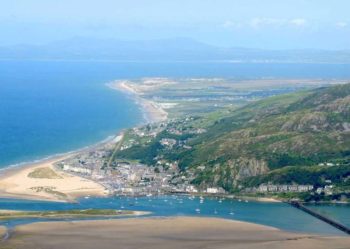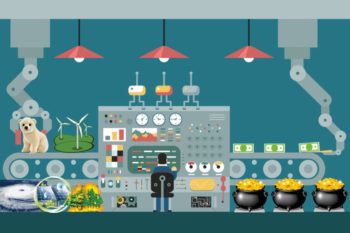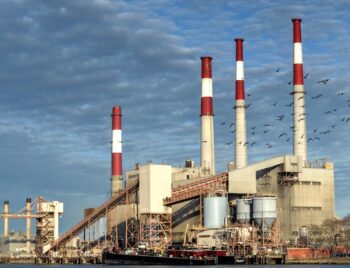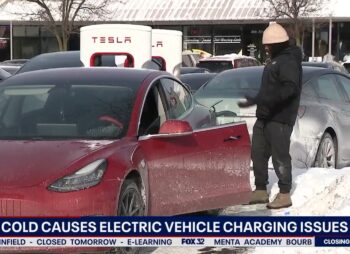
While moving aggressively to control the spread of a deadly virus seems like a worthy objective of public policy, for some manipulators of public opinion the COVID-19 crisis has become too terrible to waste on merely controlling infectious disease.
Even before the World Health Organization’s pandemic declaration, the world’s climate activists had already decided to capitalize on the emerging global policy panic.
What an opportunity! Air travel curtailed, world trade slowed, fossil fuel use in decline, growth falling, people staying home and not using their carbon-emitting vehicles — a textbook demonstration of the benefits of carbon control policy.
Leading the high-level march of triumph was Christiana Figueres, former executive secretary of the United Nations Framework Convention on Climate Change and one of the architects of the 2015 Paris Agreement that Canada has committed to.
In a recent interview on British television, Figueres warned that COVID-19 will not be the last disease eruption if the world continues to “deny, delude and delay on climate change.”
Then Figueres was asked by the interviewer: “Is there any sense that this could be self-controlling, that as we see economic growth possibly slowing down around the world because of the coronavirus, that’s actually good for the climate?”
Figueres: “Well, that is ironically, of course, the other side of it. It may be good for the climate because there is less trade, there’s less travel, there’s less commerce … if we really sustain several months of reduced travel, we may realize that we don’t have to travel.”
The former UN executive is co-author of a new book, The Future We Choose: Surviving the Climate Crisis, which describes a feel-good neo-communist future in 2050 where much more than travel has disappeared in a new “communal effort” to produce goods.
“Instead of going to a big grocery store for food flown in from hundreds, if not thousands, of miles away, you buy most of your food from small local farmers and producers.”
Food, therefore, becomes more expensive, but because food is now “something to be prized” it has “turned out to be a better recipe for happiness.”
Figueres is not a lone voice attempting to turn the COVID-19 pandemic, and its associated economic fallout, into an opportunity.
At the Globe and Sail, the Toronto-based newspaper and cruise ship promoter, an oped last week by veteran green fear-monger Thomas Homer-Dixon announced that “Coronavirus will change the world. It might be a better future.”
Homer-Dixon is an environmental professor at the University of Waterloo and head of the Cascade Institute at Royal Roads University in Victoria, a new academic venture dedicated to shifting “global civilization away from a path that leads to calamity” and toward sustainable development.
In his op-ed on the pandemic calamity, the professor observed the empty shelves at a big-box grocery store near Victoria and immediately began to marvel at the “surprising silver linings around the coronavirus clouds.”
There may be a few million dead along with massive disruption to the global economic system in which “shocks propagate like a row of dominoes falling over.”
But think of the benefits! We can all now realize that this global virus crisis is revealing the “critical vulnerabilities in humanity’s planet-spanning economic, social and technological systems.”
Think of all the global interconnectivity that, thanks to COVID-19, is now revealed to be at a tipping point: “air traffic, financial, energy, manufacturing, food distribution, shipping, and communications networks.”
COVID-19, writes Homer-Dixon, is “a collective problem that requires global collective action — just like climate change.”
The same theme emerged across the Atlantic last week in a Financial Times feature that presented the coronavirus “an epidemic for our times.”
Writer Henry Mance said it pits pessimistic environmentalists against optimists such as Steven Pinker. Mance sided with the pessimists.
COVID-19 “could, at the very least, be part of the learning curve. If we can accept canceled flights, closed schools, postponed sporting fixtures now, perhaps we can accept restraints in the future.”
On The Climate Crisis web page at The New Yorker magazine, U.S. radical fossil fuel activist Bill McKibben (pictured above) wrote that “There’s nothing good about the novel coronavirus.”
McKibben didn’t really mean that, because he certainly was not going to let a pandemic stand in the way of a terrific opportunity. “However,” he continued, “if we’re fated to go through this passage, we may as well learn something from it.”
What we learn, said McKibben, is that “giant cruise ships are climate killers and, it turns out, can become floating sick wards.” Maybe, too, the COVID-19 pandemic will teach us to “substitute human contact for endless consumption.”
McKibben’s message was riddled with incoherence.
Still, the ever-vigilant producers at CBC Radio’s The Current noticed his New Yorker item and lined him up to tell Canadians that when the pandemic is over “we may feel real relief … and perhaps start to evaluate whether or not the satisfaction we want as human beings come from contact with other people, not from the consumption of stuff. If that message sank in, then there might be some real benefit for the larger, more enduring crisis that we face in the planet’s atmosphere.”
As the CBC interview ended, McKibben took a shot at Canada. “If we set all the oil in Alberta on fire, that CO2 is gonna travel all over the world as people burn it in gas tanks in their cars.”
What that has to do with the coronavirus doesn’t really matter. For McKibben and others, this pandemic is just too terrible to waste.
Read more at Financial Post

















The last great Plague first began in China, around 1348, this happened to be about when the last Little Ice Age, Maunder Minimum began, intense rains flooding on a grand scale, heatwaves, cold, disease. Greenland, formerly settled with Vikings farming, grew cold. Second wave of plague in 1600s, then another 1800s, all from China, And all those times were Maunder/Dalton minima sun cycles.
From the article, “Figueres warned that COVID-19 will not be the last disease eruption if the world continues to “deny, delude and delay on climate change.”” Just where is the study that says climate change causes new diseases? You can be sure there isn’t one.
When I was a medical microbiology student in the early 1970’s before HIV was known I did predict new diseases would emerge. I reasoned with a higher population there would be more opportunities for infectious agents to make the jump from animals to man. Whether or not this is true we can be sure climate change isn’t a factor.
As I have said before, it is important to have economies that are strong because they use fossil fuels so they can deal with the economic impact of the coronavirus. We also need a strong medical establishment and to have that we need a strong economy.
David, in response to your last paragraph, can you imagine how we could have dealt with a virus like the Wuhan virus if our economy were crippled by a Green New Deal? It would be so many more times worse due to our low economic strength to fight such a disease.
I said that yesterday. It will be true for as long as we can pull fuel out of the ground.
Some people are acting in their own self-interest, they’re hoarding, every man for himself, isolating. In that regard, Socialists haven’t gotten through to the masses. This is an opportunity for everyone to heed the golden rule, to share and sacrifice. Not because of politics, because we can.
Of course the “we” referred to by Figueres doesn’t include her or the other elites when it comes to “We don’t need to travel”. They of course will continue to need to travel but all of us knuckle-dragging peons don’t have any reason to have to travel.
maybe its time for all the Climate Alarmists to go live in a Grass Hut and far away from City and Farms they can live off the land and enjoy t without forcing us to live as they do